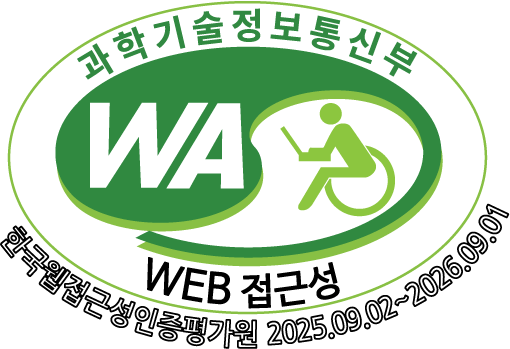국내 디지털 인력 부족, 특히 AI 분야의 인재난은 고질적인 문제를 넘어 국가 경쟁력을 위협하고 있다. 이미 글로벌 원격업무가 자리 잡고 국내 AI 인재의 해외 유출이 지속되는 상황에서, 기존의 물리적 유치 중심 정책만으로는 해외 인적자원 확보에 한계가 있다. 따라서 본고를 통해 해외 거주 디지털 인재를 우리 기업이 유연하게 활용하는 'Two-Track 전략'의 필요성을 제기한다. 이를 위해 글로벌 디지털 인재 소싱 주요국(미국, 베트남, 인도, 일본)의 인력 시장 특성과 장단점을 심층 분석하여, 우리 기업과 정부가 실행할 수 있는 실질적인 해외 거주 인재 활용 방안과 정책적 시사점을 도출하였다. '글로벌 디지털 인재'란 디지털 기술 및 AI 활용 역량뿐만 아니라, 국경을 넘어 적극적으로 성장 기회를 탐색하는 '글로벌 이동성'과 '적극성'을 갖춘 인력으로, 본고에서의 ‘해외 거주 디지털 인재’란 대한민국 외의 국가에 거주하는 글로벌 디지털 인재를 말한다. 국내 기업의 디지털 인재 소싱과 관련한 주요국들은 각기 다른 기회와 도전과제를 제시한다. 미국은 세계 최고 수준의 인재가 모인 혁신 생태계의 중심이지만, 막대한 인건비와 최근 강화된 비자 정책이 큰 변수다. 미국 인재 활용은 높은 비용을 감당할 수 있는 소수정예 R&D 팀 단위의 '셀 단위 스카우트'와 비동기식 협업이 효과적일 것이다. 베트남은 풍부하고 젊은 인력 바탕의 인건비 효율성과 정부의 강력한 육성 의지가 강점이나, 아직 최상위급 AI 인재는 부족하고 문화적 차이 극복 노력이 필요하다. 따라서 '한국인 기획자 + 베트남 개발자' 조합으로 품질과 소통의 간극을 메우고, 핵심 기능은 직접고용, 변동적 과제는 아웃소싱을 병행함이 유리할 수 있다. 인도는 압도적 규모의 인력 풀과 뛰어난 영어 소통 능력이 장점이나 인재 간 역량 편차가 크고 복잡한 현지 노동법규가 진입장벽이다. 따라서 채용 리스크 관리를 위해 다단계 검증 파이프라인을 구축하고, 초기에는 EOR을 활용해 법적 부담을 최소화하는 접근이 필요하다. 일본은 대규모 DX 시장의 도래와 지리·문화적 근접성이 기회요인이지만, 신기술 인력난과 특유의 더딘 의사결정 문화는 고려사항이다. 일본의 경우 최근 활성화된 부업 인재를 유연하게 활용하고, 현지 파트너십을 통해 신뢰를 쌓으며 리스킬링 프로그램 등을 통해 시장에 진입하는 장기적 관점이 요구된다. 이러한 맥락에 따라 결론에서는 국경 없는 디지털 인재 활용을 위한 법·제도 인프라 혁신, 데이터 기반의 신뢰성 있는 해외 인재 소싱 및 활용 검증 체계 구축, 초국경 협업 역량 강화 및 환경 고도화, 전략 거점 중심의 맞춤형 인재 파이프라인 및 R&D 생태계 구축이라는 4대 정책 방향을 도출하고 각 세부 과제를 제시하였다. 디지털/AI 인재가 곧 기업과 국가의 경쟁력이 되는 시대에, 우리는 인재를 '유치'하는 관점에 더해 전 세계 인재를 '활용'하는 유연한 시각을 가져야 할 때다. 본고에서 제시하는 국가별 맞춤형 인재 활용 전략과 정책 제언이 국내 기업의 인력난 해소와 글로벌 경쟁력 강화에 기여하길 기대한다. Executive Summary Korea’s shortage of digital talent—especially in AI—has progressed from a chronic concern to a direct threat to national competitiveness. With global remote work now firmly established and the continued outflow of Korea’s AI talent, policies focused solely on physical relocation are no longer sufficient to secure global human resources. This report therefore advances the need for a “Two-Track Strategy” that enables Korean firms to flexibly leverage overseas-based digital talent. To that end, we provide an in-depth analysis of the labor-market characteristics and the strengths and weaknesses of key sourcing countries—the United States, Vietnam, India, and Japan—and derive practical measures and policy implications that Korean companies and the government can implement to utilize talent residing abroad. By “global digital talent,” we mean professionals who not only possess digital and AI capabilities but also exhibit “global mobility” and the proactiveness to seek growth opportunities across borders. In this report, “overseas-based digital talent” refers to global digital talent residing outside the Republic of Korea. Each of the major countries relevant to Korean firms’ digital-talent sourcing presents distinct opportunities and challenges. The United States remains the world’s premier innovation hub, concentrating top-tier talent, but extremely high labor costs and recently tightened visa policies are major constraints. For the United States, a targeted approach is advisable: recruit small, elite R&D “cells” and structure work for effective asynchronous collaboration. Vietnam offers cost efficiency grounded in a young, abundant workforce and strong government commitment, yet it still lacks sufficient top-tier AI specialists and requires sustained effort to bridge cultural differences. A practical model for Vietnam is to pair Korean planners/product managers with Vietnamese developers to close quality and communication gaps, combining direct hires for core functions with outsourcing for variable tasks. India provides a vast talent pool and strong English proficiency, but capability dispersion across candidates is wide and local labor regulations are complex. To manage hiring risk in India, companies should build multi-stage assessment pipelines and, at the outset, consider Employer-of-Record (EOR) arrangements to minimize legal exposure. Japan presents a growing DX market and geographic-cultural proximity, but faces shortages in cutting-edge skills and characteristically slow decision-making. In Japan, firms should flexibly tap the expanding “side-job” talent base, cultivate trust through local partnerships, and adopt a long-term entry strategy that includes reskilling programs. In this context, the conclusion identifies four overarching policy directions and presents detailed follow-up tasks: (1) innovating the legal and institutional infrastructure to enable the cross-border utilization of digital talent; (2) establishing a data-driven, trustworthy system to source overseas talent and validate its effective deployment; (3) strengthening cross-border collaboration capabilities and further advancing the enabling environment; and (4) building tailored talent pipelines and R&D ecosystems centered on strategic hubs. As digital and AI talent increasingly define the competitiveness of firms and nations alike, Korea must complement the traditional paradigm of “attracting” talent with a more flexible mindset of “utilizing” talent worldwide. We hope that the country-specific strategies and policy recommendations presented here will help alleviate domestic labor shortages and enhance Korea’s global competitiveness.



